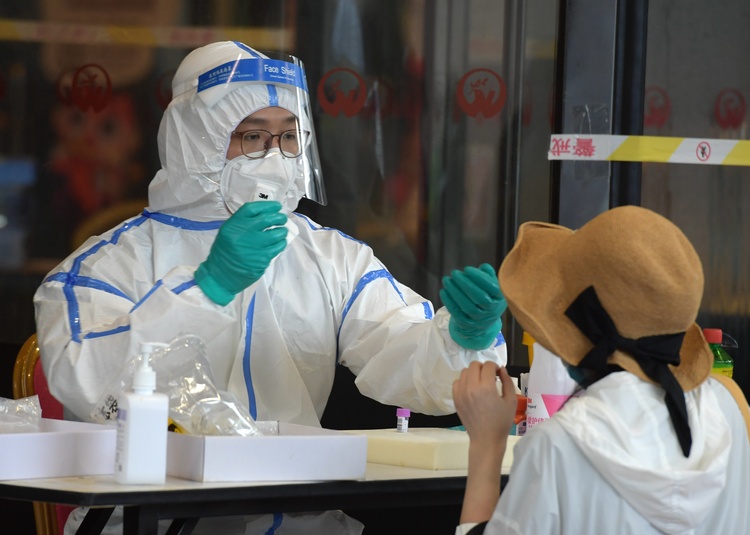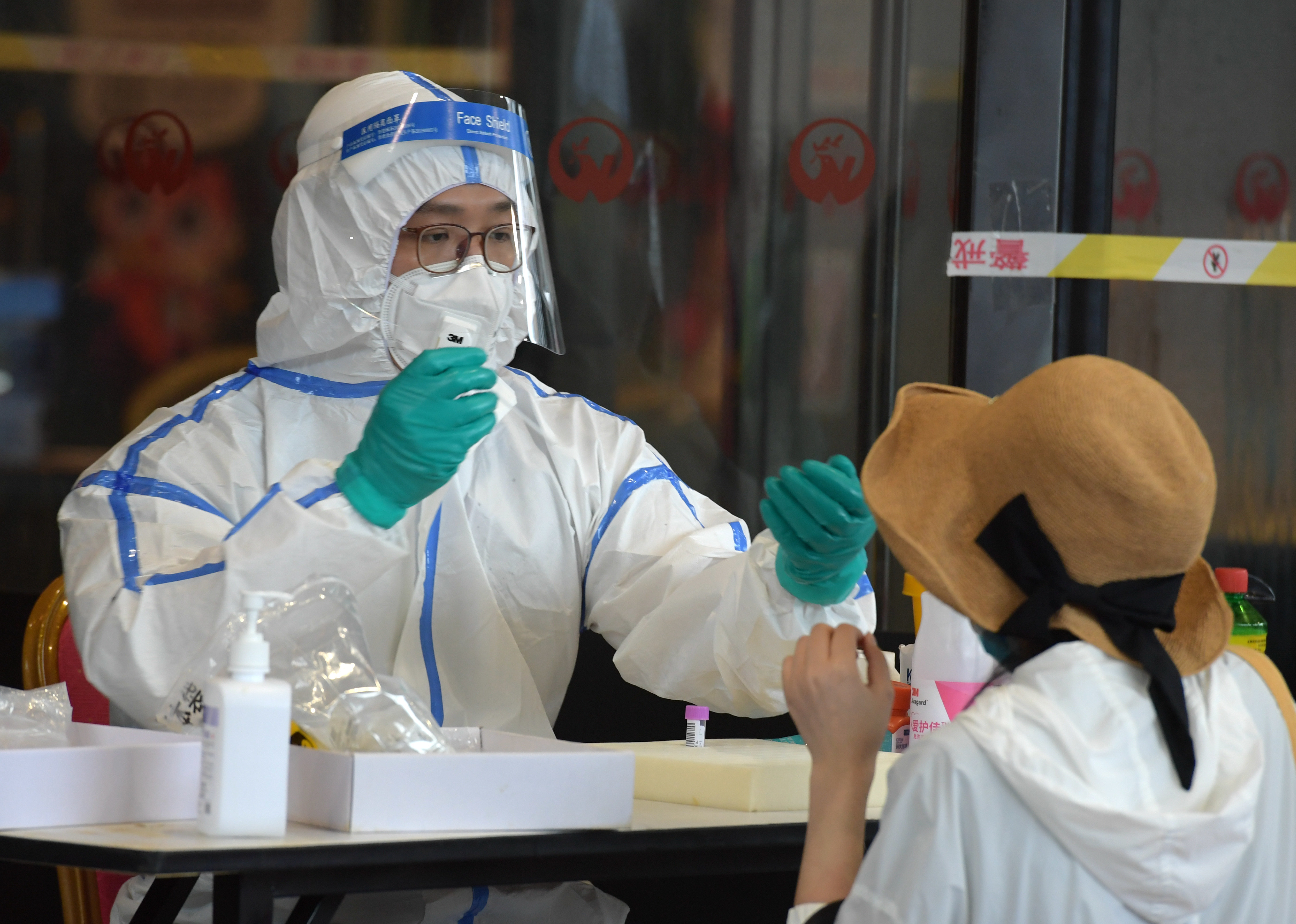Thousands lined up for tests after Beijing reported 36 new cases of coronavirus on Monday, bringing the total number to 79 since a locally transmitted infection was reported on June 12 for the first time in nearly two months, according to the National Health Commission.
Tests were administered to workers at the Xinfadi market, anyone who had visited it in the past two weeks, or anyone who had come in contact with either group.
Inspectors found 40 samples of the virus in the closed market, including on a chopping board for imported salmon.
That prompted some supermarket chains to take salmon off their shelves over the weekend and inspect markets, stores and restaurants.
Experts were doubtful the virus was being spread through salmon or other food products.
The new cluster has sent shock waves throughout China, with Beijing’s municipal government spokesman Xu Hejian describing it as “an extraordinary period” during a press conference on Sunday.
“The risk of the epidemic spreading is very high, so we should take resolute and decisive measures,” he said.
The spate of new cases prompted officials in many parts Beijing to swiftly bring back tough counter-epidemic measures, with at least three districts entering “wartime emergency mode”.
The outbreak has already spread to the provinces of Liaoning and Hebei, where a total of five new cases were found to be close contacts of patients in Beijing.
On social media, the Global Times, a nationalist tabloid run by the Chinese government, posted a video of paramilitary police officers donning face masks patrolling the market after it was closed down on Saturday.
Authorities imposed a lockdown on 11 residential compounds in the vicinity of the market, strictly prohibiting anyone from entering or leaving.
Residents will have their temperatures checked and reported on a daily basis, and their food and daily necessities delivered.
Beijing also rolled out mass nucleic acid testing for the coronavirus, setting up 193 sampling booths across the city.
More than 76,000 people were tested on Sunday, with 59 people testing positive, Xu said at a news conference on Monday.
Nucleic acid tests work by detecting the virus’ genetic code, and can be more effective at detecting an infection, particularly in the early stages, than tests which examine a body’s immune response, though the latter are easier to conduct.
Before the new cluster, Beijing had only recorded 420 local infections and nine deaths compared to over 80,000 confirmed cases and 4634 deaths nationwide, thanks to its strict travel restrictions imposed at the start of the pandemic.
Measures imposed included erecting round-the-clock security checkpoints, closing schools and sports venues, and reinstating temperature checks at malls, supermarkets and offices.
The World Health Organization (WHO) said on Sunday it was informed of the outbreak and a subsequent investigation by Chinese officials.
“WHO understands genetic sequences will be released as soon as possible once further laboratory analyses are completed,” it said in a statement.
With AAP












